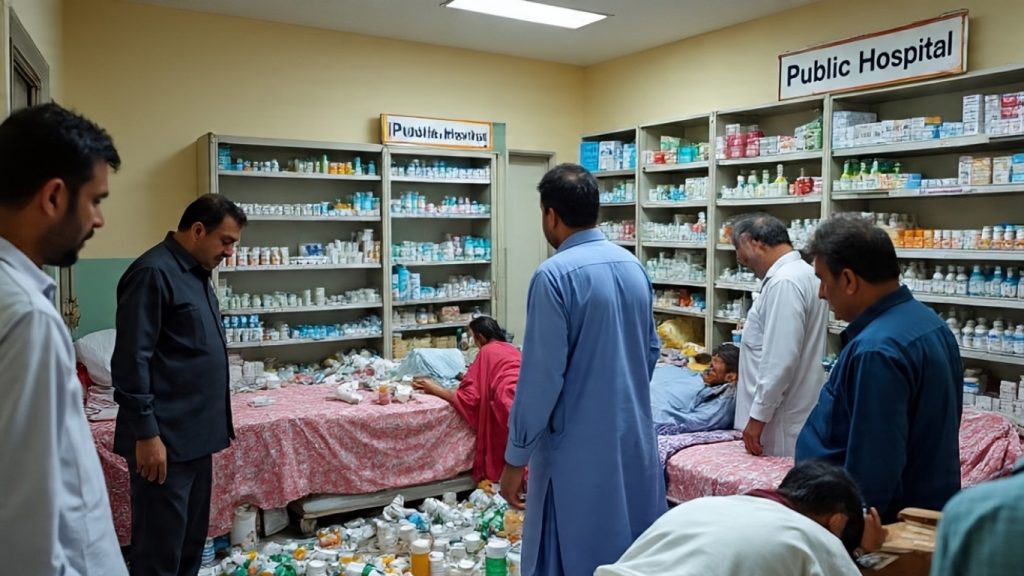Public hospitals in Pakistan are grappling with a growing crisis involving medicine theft, distribution of fake or expired drugs, and the systematic purchase of near-expiry stock, all of which are undermining patient safety and public health standards.
Multiple raids across the country have led to the recovery of stolen and counterfeit medicines, including high-value cancer drugs, insulin, antibiotics, and painkillers from private warehouses and even graveyards. In one operation, medicines worth millions were recovered after being smuggled out of government facilities. These drugs, often stamped “not for sale,” were sold illegally, endangering patient lives.
Further scrutiny revealed that public hospitals are purchasing near-expiry medicines at significantly reduced prices, violating regulatory guidelines that require a minimum shelf life of six to twelve months. This practice, driven by short-term cost savings, compromises the quality of care delivered to vulnerable patients.
Health regulators have responded by seizing fake and stolen medicines, issuing legal notices to hospital staff and suppliers, and launching investigations. Despite these actions, experts warn that enforcement remains sporadic. They insist that only continuous monitoring, transparent procurement mechanisms, and strict legal accountability can protect patients from these abuses.
Ultimately, ensuring public hospital integrity will require a system-wide overhaul: digitized tracking of pharmaceutical inventories, tighter regulatory enforcement, and real-time audits. Without these reforms, public trust in healthcare will continue to erode, placing millions at risk of ineffective or dangerous treatments.



Comments (0)
No comments yet. Be the first to comment!
Leave a Comment